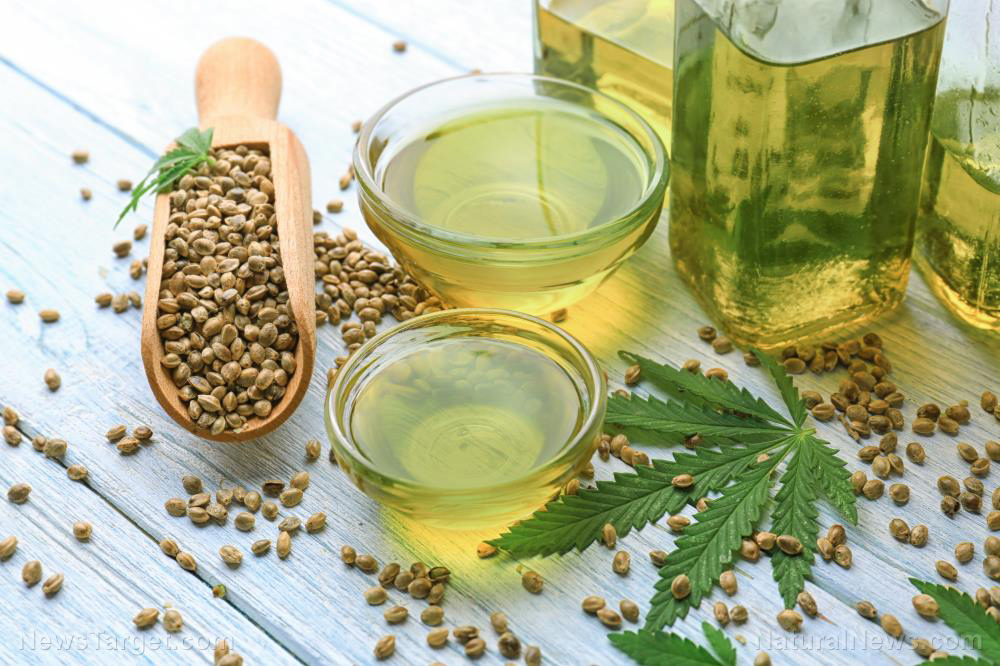Do you know the signs of an allergic reaction? 7 ways your body tries to tell you
05/02/2018 / By Janine Acero

Many people, adults and children alike, deal with allergies on a regular basis. According to the American College of Allergy, Asthma and Immunology, there are more than 50 million Americans who suffer from some type of allergy.
Most of the time, the body responds to various allergens with mild reactions such as sneezing, a runny or stuffy nose, and watery eyes. However, there could be instances when reactions are more severe such as stomach cramps, dizziness and even labored breathing.
Signs of a reaction
Some allergic reactions are stranger than others. Here are seven unusual symptoms people have developed during an allergic reaction.
- Odd itchy rash – A 2004 case report describes an 11-year-old boy who developed an itchy rash on his abdomen and under his wristwatch a week after he was fitted for his braces, which turned out to be an allergic reaction to the nickel in the braces. Nickel, a silver-colored substance often mixed with other metals to make coins and jewelry, is the most common metal that triggers allergic reactions. It’s known to cause a red, itchy, bumpy rash.
- Skin tumors – Some people who get permanent tattoos may develop strange skin growths, with red tattoo ink found to be associated with most of the skin tumors.
- Sun exposure – Some people develop blisters, hives, and swelling of the skin when exposed to sunlight. This abnormal reaction to sunlight is usually due to ultraviolet rays.
- Black spots on the skin – An itchy rash may be a common allergic reaction to poison ivy or poison oak, but there are also rare cases where people develop black spots. Black shiny deposits form on the skin and clothing when a high amount of resin, the toxic plants’ oily secretion, is exposed to the air. The spots are said to eventually peel off, and the skin heals without scarring.
- Swollen tongue – Some fruits and vegetables contain proteins similar to those found in hay pollen, which can cause oral allergy syndrome, with symptoms such as itchiness or swelling of the mouth, face, lips, tongue and throat. The immune system behaves as though the protein found in some fruits and vegetables and the pollen in the air are the same. The syndrome affects up to one-third of allergy sufferers and can occur at anytime.
- Bright red butt – People exposed to certain metals – such as mercury, gold or nickel – medications, and plants or herbs, can develop Baboon Syndrome, characterized by a bright red rash, mainly on the butt, closely resembling a baboon’s butt. The red rash can also appear on the anus, genitals, and inner thighs, and can be itchy and painful, though the syndrome doesn’t pose any serious health risks. Recent studies have shown that Baboon Syndrome can also be triggered by antibiotics and antibacterials administered by mouth, intravenously or on the skin.
- Shortness of breath – When you think of a physical reaction to onions, watery eyes probably comes to mind. But an onion farmer in Japan developed a cough and shortness of breath after spending too much time around onions, according to a 2018 case report. It turns out that the man had an allergy to a type of mold, called Aspergillus niger, that was growing on the onion peels. The mold can cause a condition called hypersensitivity pneumonitis, which occurs when the tiny air sacs in the lungs, known as alveoli, become inflamed. The man’s symptoms went away when he wasn’t at work, and he was advised to wear a thick filtered mask while working with onions.
Natural allergy remedies
When an allergy attack happens, the usual response is to find some antihistamines for relief. But before you head straight to the nearest drugstore, consider these natural remedies that could also effectively alleviate those allergic reactions.
The power of the elements: Discover Colloidal Silver Mouthwash with quality, natural ingredients like Sangre de Drago sap, black walnut hulls, menthol crystals and more. Zero artificial sweeteners, colors or alcohol. Learn more at the Health Ranger Store and help support this news site.
- Acupuncture – According to one study published in the European Journal of Allergy and Clinical Immunology, “active acupuncture” (meaning the needles were placed in a way that induced a feeling of numbness or tingling) effectively minimized allergy symptoms such as stuffy nose and sneezing in patients who underwent this treatment three times a week for four weeks. (Related: Banish allergies with acupuncture: Here’s how.)
- Probiotics – Probiotics or “good bacteria” are known to be good for your gut, but one study found that Lactobacillus paracasei ST11 (a species of lactic acid bacteria found in dairy product fermentation and probiotic supplements) lowered nasal congestion in those suffering from seasonal allergies.
- Spirulina – This type of algae is loaded with vitamin B12 and protein and is found to effectively relieve sneezing and stuffy nose.
- Nasal sprays – A spritz of saline solution to the nose is found to reduce not only the allergy symptoms, but also the need for future medication. German researchers posit that the saline wash physically flushes out mucus, debris, allergens, and air pollutants.
- Moderate-intensity exercise – The last thing you want to do when an allergic reaction happens is exercise, but a moderate-intensity workout has been found to minimize allergy symptoms. Researchers believe this level of exercise produces an anti-inflammatory effect in the nasal passages.
Did you know that certain foods can also help lessen allergy symptoms? Head over to NaturalCures.news to read more articles on natural treatment alternatives to various illnesses.
Sources include:
Tagged Under: acupuncture, allergic reaction, allergies, allergy attacks, allergy symptoms, alternative medicine, Baboon Syndrome, black spots, bright red butt, disease treatments, itchy rash, men's health, mild exercise, moderate exercise, nasal sprays, natural remedies, probiotics, red rash, skin conditions, skin health, skin tumors, spirulina, swollen tongue, treat allergies naturally, understanding your body, women's health



















